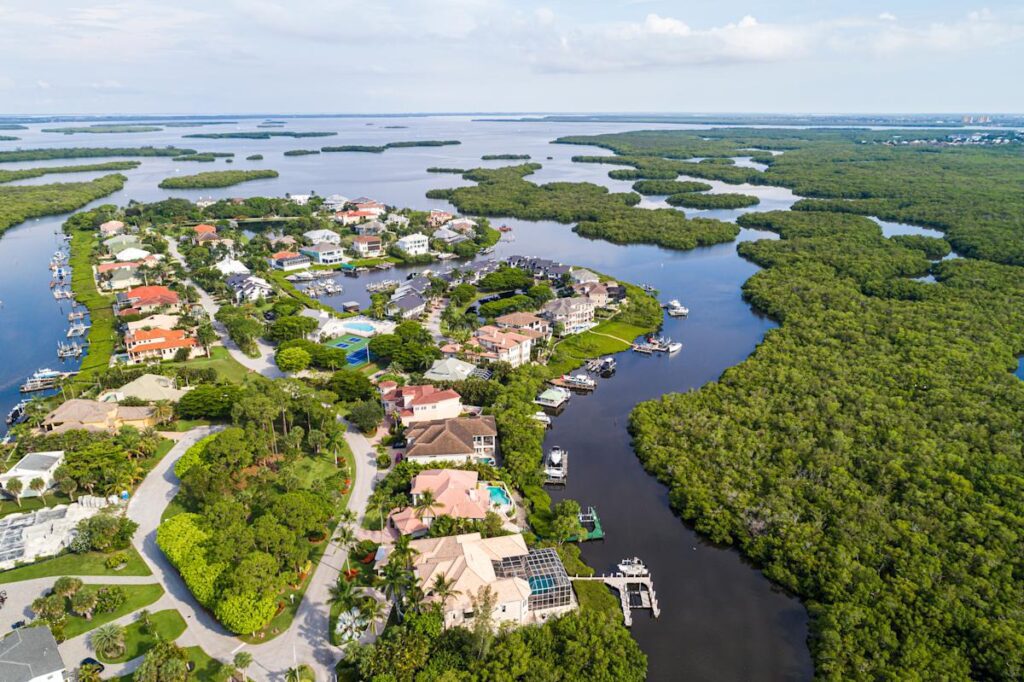Florida Housing Market Shifts: Pandemic Boom Ends as Prices and Inventory Change
Florida’s once red-hot housing market is undergoing a noticeable transformation. The pandemic-fueled surge in property demand has tapered, causing an increase in home inventory, longer selling times, and price declines in many regions. Understanding this shift is crucial for buyers, sellers, and real estate professionals navigating the Sunshine State’s evolving market landscape.
Florida’s Housing Inventory Hits Record Highs
According to Realtor.com, Florida’s available housing inventory recently surpassed pre-pandemic levels, reaching over 168,000 active listings as of last month. Compared to previous years, homes are lingering longer, with an average market time of 75 days—13 days more than last year, based on data from Redfin.
Key Drivers Behind Inventory Growth
- Slowing Migration: The influx of new residents moving to Florida is decreasing, dropping from over 300,000 in 2022 to a net 64,000 in 2024.
- Hurricane Concerns: The aftermath of Hurricane Ian in 2022 has left potential buyers wary, prompting more diligent questioning about flood history and property resilience.
- Rising Costs: Higher homeowner insurance premiums and tax increases are deterring some buyers.
- New Construction: Aggressive building over recent years has flooded the market, empowering buyers with more options.
Ben Grieco, a real estate agent based in Port Charlotte, highlights the effect:
“Inventory and time on market has been dramatically increasing… There’s just so much to choose from that it’s really pushing prices down.”
Price Trends: Where Prices Are Falling and Rising
As Florida’s market adjusts, price fluctuations vary across regions:
Southern Gulf Coast Sees Fastest Decline
- Punta Gorda: Prices dropped nearly 8% since January 2024.
- Cape Coral: A decrease of 5.6% year-over-year.
- North Port and Naples: Home values retreated by more than 3%.
This softening reflects a buyer’s market environment, contrasting with the state’s continued overall resilience.
Markets Where Prices Continue to Climb
Despite price reductions elsewhere, some urban areas experience modest growth:
- Miami
- Tallahassee
- Gainesville
Statewide, home prices average approximately 1% higher than last year, indicating a complex, regionally varied housing landscape.
Hurricane Impact Influences Buyer Behavior
Hurricane Ian’s devastation remains fresh in the minds of both buyers and sellers, particularly in Southwest Florida. Fort Myers agent Rick Harrison explains:
“Everybody at this point has been educated enough to know that hurricanes had a huge impact on our area. On both sides, people are worried.”
This awareness has heightened scrutiny over flood history and structural safety, influencing purchasing decisions and motivating some sellers to close deals before the June hurricane season.
An aerial view shows the aftermath of Hurricane Ian near Fort Myers in 2022.
Affordability Challenges Amid Price Drops
While median listing prices have eased to around $435,000—a decline since mid-2022—the price remains 32% higher than at the end of 2019. Combined with mortgage rates above 6%, many potential buyers find affordability out of reach, contributing further to the growing inventory.
Increased Buyer Leverage and Incentives
For buyers able to enter the market, significant negotiating power has returned:
- Offers $20,000 below asking price are increasingly accepted.
- Sellers are more willing to make repairs uncovered during home inspections.
- Contingency clauses, previously waived in the boom years, are making a comeback.
New homebuyers also benefit from attractive incentives by builders, including:
- Mortgage rate buy-downs, sometimes to below 5%.
- Closing cost credits.
- Upgraded features (e.g., storm windows).
- Price reductions, a rare practice for builders to protect community home values.
Rick Harrison recommends new construction homes due to these perks and the strength of updated hurricane-resistant building codes.
Real Buyer Story: Dreaming of Florida’s Coast
Olivia Wadden and her husband, relocating from Iowa to be closer to family, secured a deal earlier this year on a new construction townhome near Bradenton. Their below-list price offer was accepted, and they enjoyed extras such as mortgage rate buy-down and upgraded storm windows.
“Obviously, the market has been so crazy high, but lately it’s been dropping,” said Wadden. “We just had our eyes open and were looking with a Realtor. We finally found the one that fit our family.”
What Buyers and Sellers Should Know Now
For Buyers:
- Explore new construction options to secure incentives and hurricane-resistant properties.
- Leverage flexible negotiations in cooler markets.
- Investigate regional price trends to identify opportunity zones.
For Sellers:
- Price competitively to attract buyers in a more patient market.
- Be prepared to address storm-related concerns transparently.
- Consider making repairs to expedite sales.
Expert Insight: Market Correction, Not Collapse
Real estate professionals like Tampa Bay agent Sam Brown Perez caution against expecting drastic price drops. Instead, they foresee a leveling off after the pandemic boom:
“The market is now correcting… We’re not seeing an overcorrection, but it’s starting to level out again.”
Conclusion
Florida’s housing market is evolving as the pandemic housing surge wanes amid economic, environmental, and demographic shifts. Buyers now enjoy more options, incentives, and negotiating power, while sellers face the need to adapt pricing strategies and address heightened buyer concerns. Keeping an eye on regional trends and remaining informed about market conditions is essential for anyone involved in Florida real estate today.
Helpful Resources:
- Understanding Florida Homeowners Insurance
- Florida Hurricane Preparedness Guide
- Tips for Navigating Mortgage Rate Changes
For continuous updates on the Florida housing market and strategies to navigate it, monitoring trusted real estate data sources and consulting local experts is highly recommended.


